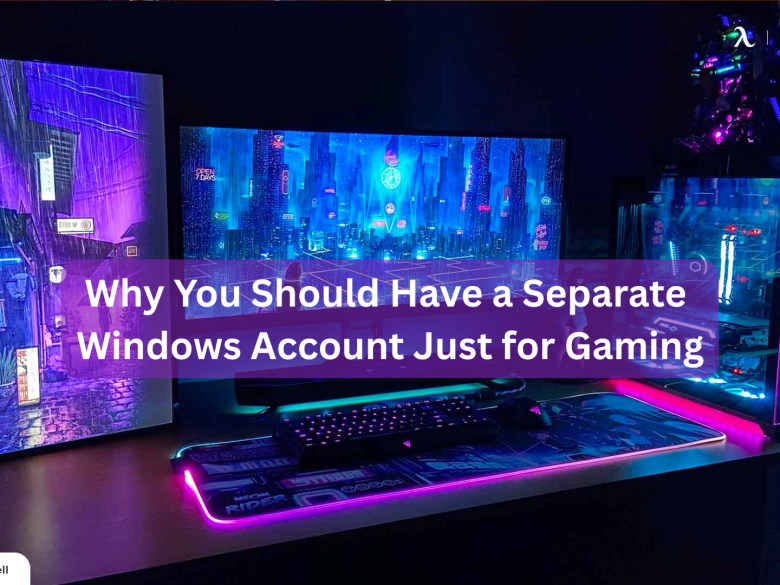Why You Should Have a Separate Windows Account Just for Gaming

If you use your PC for both work and gaming, you’ve probably noticed the two don’t always get along. Gaming requires certain tweaks and settings that can make everyday tasks annoying, while productivity apps can slow down or interrupt your play sessions.
A simple fix? Create a dedicated user account for gaming on Windows. It keeps things tidy, prevents conflicts, and makes both work and play run smoothly. Here’s why it’s worth it:
1. No More Conflicting Settings
Windows lets you tweak tons of settings for performance, but what’s good for gaming isn’t always good for daily use.
- Power mode: Gaming usually runs best on Best performance, but that drains battery and makes laptops noisy during normal tasks.
- Visual effects: Disabling them helps games, but your desktop looks flat and dull afterward.
- Network settings: Low ping helps games, but slows downloads and streaming.
- Mouse settings: High DPI and no acceleration = great for games, terrible for normal browsing.
Instead of constantly changing things back and forth, you can keep gaming settings in one account and work/study settings in another.
2. Cleaner Startup Apps
Gaming needs launchers, overlays, and maybe even streaming tools. Work needs productivity apps, VPNs, and communication tools. With one account, everything loads together—clogging memory and CPU.
With separate accounts, only the right apps start up, keeping your system light and distraction-free.
3. Fewer Background Processes
Many apps sneak in background processes that eat up CPU, RAM, or internet bandwidth. Work tools running in the background can cause stutter in games, and gaming apps can drain resources while you’re just trying to study. Separate accounts mean only the necessary processes run, since they’re tied to the account you’re logged into.
4. Better Protection for Your Personal Data
Gaming comes with risks. Mods, overlays, and tools can be malware gateways, and phishing scams often target gamers. If you stream, there’s also the danger of accidentally showing personal files or work documents.
Keeping gaming in a separate account reduces what attackers (or accidents) can access. For extra safety, you could even make your gaming account a standard user instead of an admin.
5. Fewer Disruptions From Tasks and Notifications
Work apps love scheduling tasks or throwing prompts your way. Unfortunately, they can pop up while gaming—sometimes even minimizing your game. By gaming on a separate account, you cut off those unnecessary interruptions. No random pop-ups, no work emails, no productivity reminders while you’re in the middle of a match.
Final Tip
If you do set up a dedicated gaming account, make sure to log out completely when switching between accounts. That way, processes from your work account won’t linger in the background.
And if you don’t need Microsoft’s ecosystem for things like OneDrive, consider using a local account for gaming. It keeps things lighter—unless you’re using Xbox Game Pass, which needs a Microsoft account.
Bottom line: Splitting your Windows PC into separate accounts for work and gaming is one of the simplest ways to keep both running smoothly. Less clutter, fewer conflicts, better performance.







